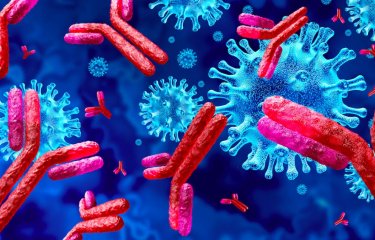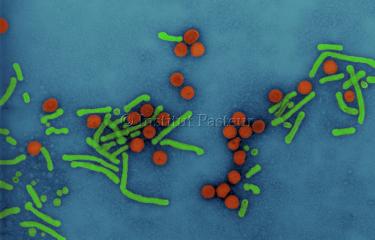Natural killer (NK) cells, are a unique type of immune cell, known to have important roles in protection against tumor cells and viruses. NK cells display immune memory properties in certain models, however, the long-term status of NK cells following systemic inflammation is unknown. In recent work, researchers at the Institut Pasteur shed light on mechanisms ensuring a heightened response to secondary stimulation. This discovery paves the way for potential therapeutic strategies to restore weakened immune function.
Systemic inflammation is associated with many clinical situations such as trauma, hemorrhagic shock, severe burns, resuscitated cardiac arrest or sepsis, all requiring intensive care (read our sepsis fact sheet). These are potentially life-threatening events. However, even when patients survive, the long-term consequences for quality of life are significant. Among short-term and long-term effects, studies have shown that the immune system is severely affected, leading to a condition that may predispose to future infections.
NK cells response to sepsis
Natural killer cells, so-called NK cells, are unique players in innate immunity. This "innate immunity" is the name given to the rapid defense reaction to a first encounter with an infectious agent (bacterium, virus, fungus ...) to eventually eliminate it. The study of NK cells is an interesting research approach for immunotherapy, a therapy aimed at boosting a patient’s immune defenses to fight disease.
Using an animal model of systemic inflammation, researchers investigated the long-term response of NK cells following a sepsis-like event. “We found that NK cells can, “remember” systemic inflammation, as they acquire immune memory-like responses” says Mélanie Hamon, head of the Junior Group (G5) Chromatin and Infection. Indeed, upon secondary stimulation, NK cells respond to a higher extent then upon primary stimulation. “Additionally, we show that such a memory-like response can save animals from an otherwise lethal E coli infection” she says.
*Junior Group or G5 : research group for young scientists, created for five years.
A first step on the road to therapeutics
Researchers further identified a novel mechanism mediating NK cell memory. It turns out NK cells can “remember” a previous infection by modifying the structure of their DNA, at the genes that are enhanced during a memory response. Researchers uncovered a specific modification of proteins at regulatory regions called enhancers that appears specifically in memory NK cells. Importantly, this specific modification can be chemically targeted to erase memory.
“Our results show that the immune system is not only suppressed after systemic inflammation but can also respond with increased function at the level of particular immune cells like NK cells. In addition, we show that we have the ability to modulate this response using chemical compounds.” says Mélanie Hamon. This property could be exploited to restore normal immune function after sepsis or any other major aggression.
Source
H3K4me1 supports memory-like NK cells induced by systemic inflammation, Cell Reports, December 17th, 2019
Orhan Rasid1,2, Christine Chevalier1, Tiphaine Marie-Noëlle Camarasa1,3, Catherine Fitting2, Jean-Marc Cavaillon2, Mélanie Anne Hamon1
1 G5 Chromatine et Infection, Institut Pasteur, Paris, France
2 Unité Cytokines & Inflammation, Institut Pasteur, Paris, France
3 Université Paris Diderot, Sorbonne Paris Cité, Paris, France





